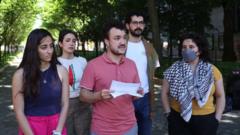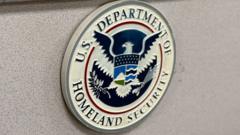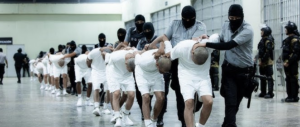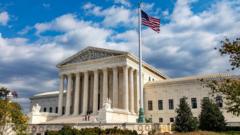A US court has allowed the deportation of Mahmoud Khalil, a Columbia University graduate detained for participating in protests concerning the Gaza conflict. Citing national security concerns, the judge's ruling highlights the contentious intersection of immigration laws and political activism.
US Judge Approves Deportation of Columbia Graduate Mahmoud Khalil Amid Protests

US Judge Approves Deportation of Columbia Graduate Mahmoud Khalil Amid Protests
Mahmoud Khalil, a pro-Palestinian activist and Columbia University graduate, faces imminent deportation despite his permanent residency status and having committed no crimes.
A US judge has ruled in favor of the government’s decision to deport Mahmoud Khalil, a 2022 Columbia University graduate and pro-Palestinian activist, detained since March 8 in a Louisiana immigration facility. Khalil, a permanent legal resident, faces removal under a Cold War-era immigration statute, despite not being charged with any criminal activities.
Khalil's arrest reportedly stems from his participation in campus protests relating to the ongoing Gaza conflict. He articulated in a letter from detention that his apprehension is a consequence of his advocacy for Palestinian rights. Video footage of his arrest in New York has drawn attention to his case, igniting discussions on immigration enforcement targeting individuals based on their political beliefs.
During the court proceedings, the presiding judge sided with the Trump administration, expressing acceptance of the administration's claims that Khalil poses potential "adverse foreign policy consequences" for the United States. The court granted Khalil's legal team until April 23 to file an appeal against the deportation order.
Khalil expressed concern over the judicial process, asserting that the due process rights and fairness principles provided by law were not upheld in his case. "This is exactly why the Trump administration has sent me to this court, 1,000 miles away from my family," he stated, underlining the perceived injustices of his situation.
As the deportation case moves forward, questions surrounding the implications of immigration policy on activism continue to be a focal point of public discourse, reflecting differing views on national security, free speech, and human rights in the context of geopolitical conflicts.























